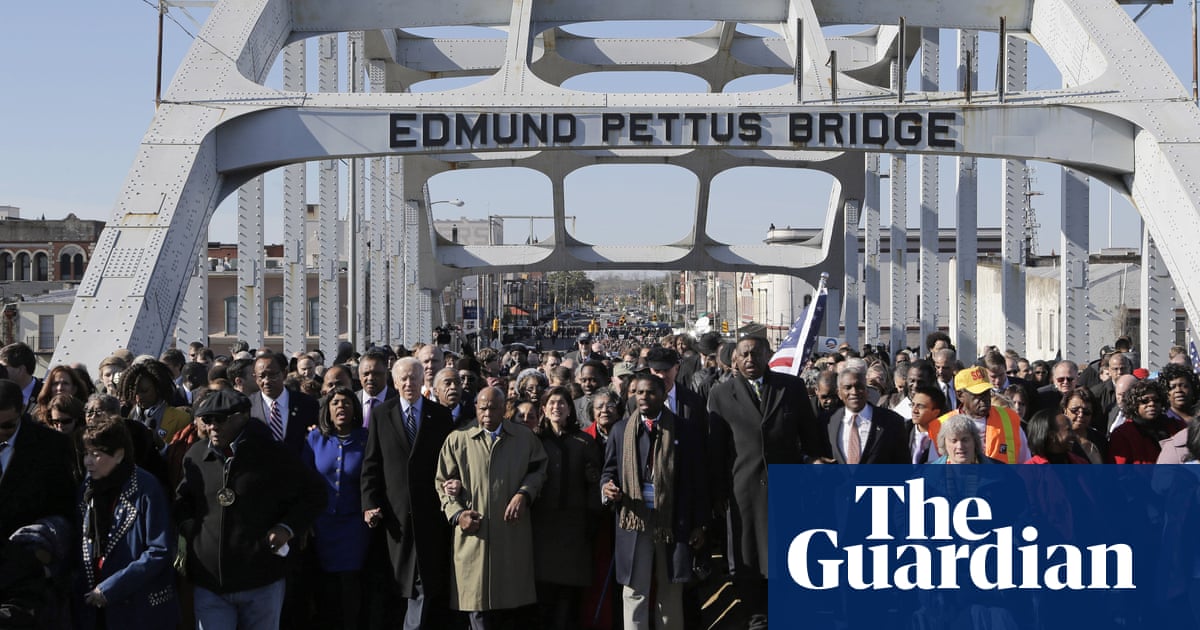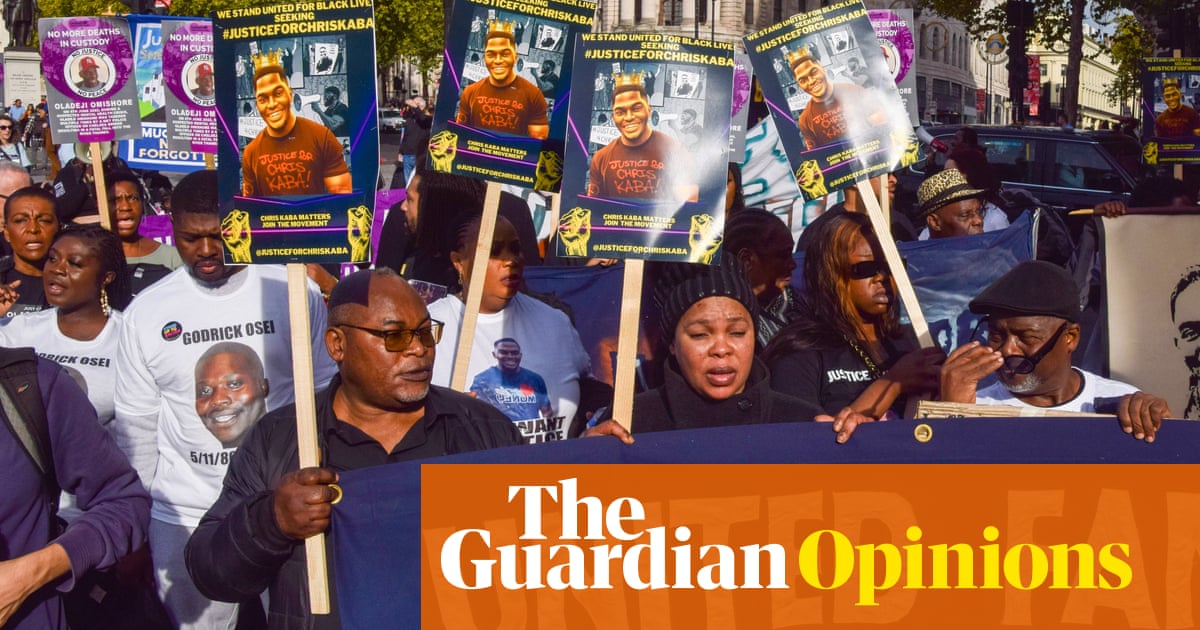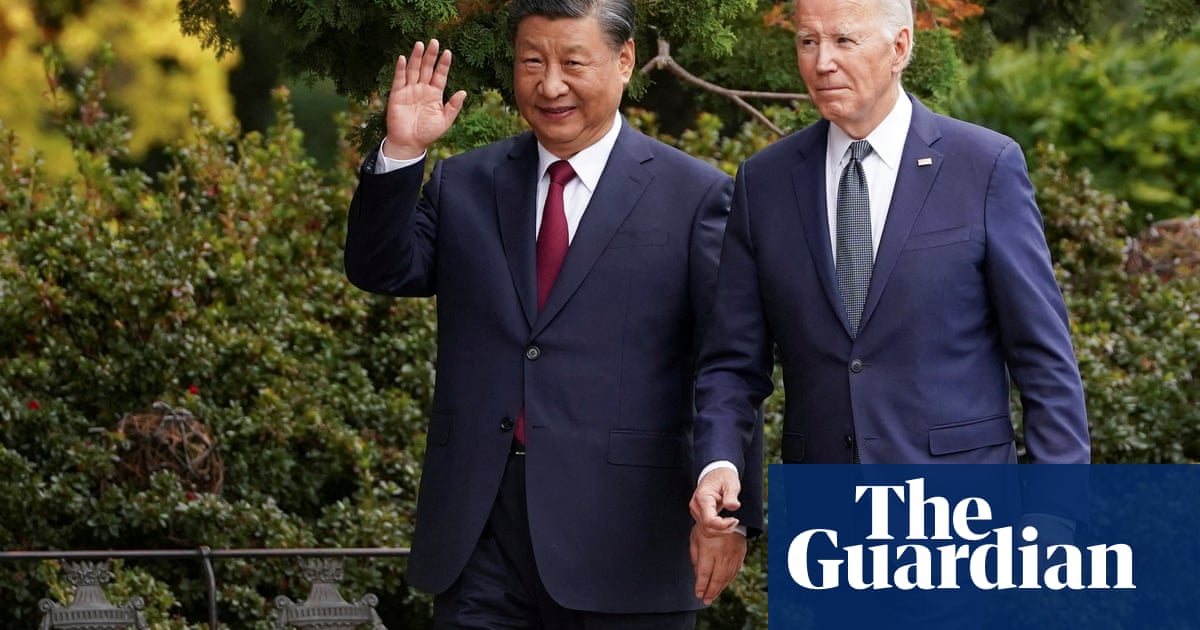
Joe Biden paid tribute to the heroes of the “Bloody Sunday” civil rights march nearly 60 years ago and used its annual commemoration to warn of an ongoing threat to US democracy from election deniers and the erosion of voting rights.
The US president joined thousands of people in Selma, Alabama to mark the movement that led to the passage of landmark voting rights legislation shortly after peaceful marchers were brutally attacked by law enforcement on a bridge though town.
Speaking on a Selma stage with the bridge as a backdrop, Biden warned that the right to vote in the US – which the civil rights marchers had sought to gain for Black Americans – was far from safe amid a concerted push to weaken voting rights legislation across the US and prominent Republican efforts to call into question election results.
“The right to vote – to have your vote counted – is the threshold of democracy … This fundamental right remains under assault,” Biden said.
He added: We have to remain vigilant … In America hate and extremism will not prevail though they are raising their ugly heads again.”
The speech presented Biden with a chance to speak directly to the current generation of civil rights activists. Many feel dejected because the president has been unable to make good on a campaign pledge to bolster voting rights and are eager to see his administration keep the issue in the spotlight.
Biden underscored the importance of commemorating Bloody Sunday 58 years ago so that history can’t be erased, while making the case that the fight for voting rights remains integral to delivering economic justice and civil rights for Black Americans, according to White House officials.
Biden said “the forces of hate” had conspired for the demise of the protestors that day.
“Six hundred believers put faith in action to march across that bridge named after the grand dragon of the KKK … to claim their fundamental right to vote.”
Biden alluded to the bitter contemporary battle over education and the teaching of US history in schools.
“History matters,” he said. “The truth matters, notwithstanding what the other team is trying to hide. No matter how hard some people try, we can’t just choose to learn what we want to know and not what we should know.
“We should learn everything – the good, the bad, the truth of who we are as a nation. Everyone should know the truth of Selma,” he added.
This year’s commemoration came as the historic city of roughly 18,000 is still digging out from the aftermath of a January EF-2 tornado that destroyed or damaged thousands of properties in and around Selma.
Ahead of Biden’s visit, the Rev William Barber II, a co-chair of the Poor People’s Campaign, along with six other activists wrote to the president and members of Congress to express their frustration with the lack of progress on voting rights legislation.
In his speech, Biden vowed to push ahead with those laws and also to keep up the pressure to get new laws passed on police reform, though that will not be easy now that Republicans control the House of Representatives after securing a narrow win in the 2022 midterm elections.
Other parts of Biden’s address sounded like a stump speech as the US awaits a widely expected announcement from the president that he will run for a second term. He touted his economic achievements and strove to strike a tone of optimism for the US as it seeks to overcome hard times.
Former president Donald Trump has already declared his own intention to run for the White House again. Trump’s own election pitch is full of false claims about the 2020 election though he remains a strong favorite to secure the Republican nomination.
Few moments have had as lasting importance to the civil rights movement as what happened on 7 March 1965 in Selma and in the weeks that followed.
Some 600 peaceful demonstrators led by civil rights activists John Lewis and Hosea Williams had gathered that day, just weeks after the fatal shooting of a young Black man, Jimmie Lee Jackson, by an Alabama trooper.
Lewis, who would later serve in the US House representing Georgia, and the others were brutally beaten by Alabama troopers and sheriff’s deputies as they tried to cross Selma’s Edmund Pettus bridge at the start of what was supposed to be a 54-mile walk to the state capital in Montgomery, part of a larger effort to register Black voters in the south.
The images of the police violence sparked outrage across the country. Days later, civil rights leader Martin Luther King Jr led what became known as the “Turnaround Tuesday” march, in which marchers approached a wall of police at the bridge and prayed before turning back.
President Lyndon B Johnson introduced the Voting Rights Act of 1965 eight days after Bloody Sunday, calling Selma one of those rare moments in American history when “history and fate meet at a single time”.












